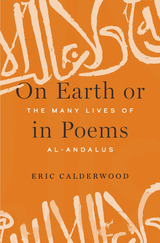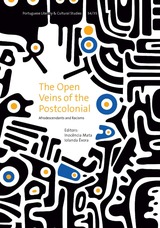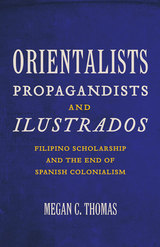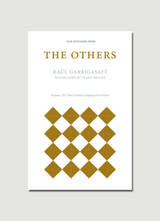5 start with O start with O

Finalist, Sheikh Zayed Book Award
“With extraordinary linguistic range, Calderwood brings us the voices of Arabs and Muslims who have turned to the distant past of Spain to imagine their future.”
—Hussein Fancy, Yale University
How the memory of Muslim Iberia shapes art and politics from New York and Cordoba to Cairo and the West Bank.
During the Middle Ages, the Iberian Peninsula was home not to Spain and Portugal but rather to al-Andalus. Ruled by a succession of Islamic dynasties, al-Andalus came to be a shorthand for a legendary place where people from the Middle East, North Africa, and Europe; Jews, Christians, and Muslims lived together in peace. That reputation is not entirely deserved, yet, as On Earth or in Poems shows, it has had an enduring hold on the imagination, especially for Arab and Muslim artists and thinkers in Europe, the Middle East, and North Africa.
From the vast and complex story behind the name al-Andalus, Syrians and North Africans draw their own connections to history’s ruling dynasties. Palestinians can imagine themselves as “Moriscos,” descended from Spanish Muslims forced to hide their identities. A Palestinian flamenco musician in Chicago, no less than a Saudi women’s rights activist, can take inspiration from al-Andalus. These diverse relationships to the same past may be imagined, but the present-day communities and future visions those relationships foster are real.
Where do these notions of al-Andalus come from? How do they translate into aspiration and action? Eric Calderwood traces the role of al-Andalus in music and in debates about Arab and Berber identities, Arab and Muslim feminisms, the politics of Palestine and Israel, and immigration and multiculturalism in Europe. The Palestinian poet Mahmud Darwish once asked, “Was al-Andalus / Here or there? On earth … or in poems?” The artists and activists showcased in this book answer: it was there, it is here, and it will be.


The writings of a small group of scholars known as the ilustrados are often credited for providing intellectual grounding for the Philippine Revolution of 1896. Megan C. Thomas shows that the ilustrados’ anticolonial project of defining and constructing the “Filipino” involved Orientalist and racialist discourses that are usually ascribed to colonial projects, not anticolonial ones. According to Thomas, the work of the ilustrados uncovers the surprisingly blurry boundary between nationalist and colonialist thought.
By any measure, there was an extraordinary flowering of scholarly writing about the peoples and history of the Philippines in the decade or so preceding the revolution. In reexamining the works of the scholars José Rizal, Pardo de Tavera, Isabelo de los Reyes, Pedro Paterno, Pedro Serrano Laktaw, and Mariano Ponce, Thomas situates their writings in a broader account of intellectual ideas and politics migrating and transmuting across borders. She reveals how the ilustrados both drew from and refashioned the tools and concepts of Orientalist scholarship from Europe.
Interrogating the terms “nationalist” and “nationalism,” whose definitions are usually constructed in the present and then applied to the past, Thomas offers new models for studying nationalist thought in the colonial world.

Case studies explore how to improve military adaptation and preparedness in peacetime by investigating foreign wars
Preparing for the next war at an unknown date against an undetermined opponent is a difficult undertaking with extremely high stakes. Even the most detailed exercises and wargames do not truly simulate combat and the fog of war. Thus, outside of their own combat, militaries have studied foreign wars as a valuable source of battlefield information. The effectiveness of this learning process, however, has rarely been evaluated across different periods and contexts.
Through a series of in-depth case studies of the US Army, Navy, and Air Force, Brent L. Sterling creates a better understanding of the dynamics of learning from “other people’s wars,” determining what types of knowledge can be gained from foreign wars, identifying common pitfalls, and proposing solutions to maximize the benefits for doctrine, organization, training, and equipment.
Other People’s Wars explores major US efforts involving direct observation missions and post-conflict investigations at key junctures for the US armed forces: the Crimean War (1854–56), Russo-Japanese War (1904–5), Spanish Civil War (1936–39), and Yom Kippur War (1973), which preceded the US Civil War, First and Second World Wars, and major army and air force reforms of the 1970s, respectively. The case studies identify learning pitfalls but also show that initiatives to learn from other nations’ wars can yield significant benefits if the right conditions are met. Sterling puts forth a process that emphasizes comprehensive qualitative learning to foster better military preparedness and adaptability.

READERS
Browse our collection.
PUBLISHERS
See BiblioVault's publisher services.
STUDENT SERVICES
Files for college accessibility offices.
UChicago Accessibility Resources
home | accessibility | search | about | contact us
BiblioVault ® 2001 - 2024
The University of Chicago Press









